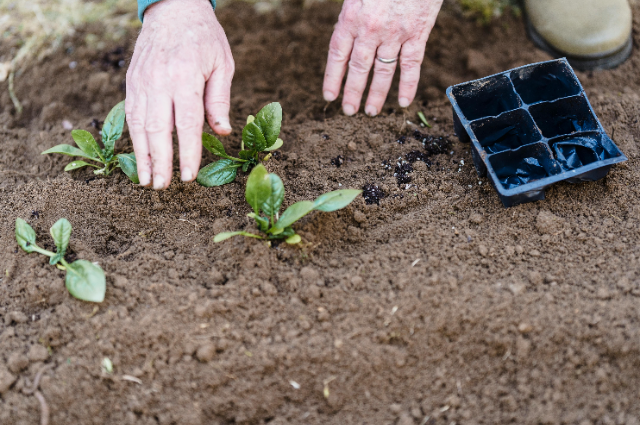
There is a rhythm to country life imposed not by men's will but by the greater and stronger forces of nature. The sun rises and sets, the seasons pass, the rain falls or does not. Success and failure are for the farmer not entirely in their control. It is here, where there is no control, that the old school of Stoicism is most vital and practiced. The Stoic farmer is an attitude not of resignation, but of acceptance—a deep realization of what can be altered and what one must endure. It is not just an attitude towards crops, but a way of living life itself.
At the heart of Stoicism is a vexing but radical notion: we are injured by nothing that happens to us but by the judgments we make about it. The Stoic farmer, having lost a field of nearly ripe wheat to a devastating hailstorm, does not waste their energy on anger at the heavens or despair. They see the event itself—the hailstorm—is not their own. It is beyond them, something of nature. Their decision is how they will react to it, not how they can keep it from occurring. They will perhaps bemoan their loss, accusing their bad luck for their share, which would be re-living the misery. Or else, without internal conflict, they will just accept things as they come and then direct their energy towards what remains to them: saving what they can, counting their remaining provisions, and making provision for the next planting. And this is the essence of Stoic farmer philosophy: clean delineation of what is "up to us" and what is not.
Daily, this philosophy is honed in practice. The farmer can't control the drought, but they can control the efficiency with which they operate their irrigation system. They can't control a seed from sprouting, but they can control healthy soil that they plow and seasonally sow. They can't keep foxes out of their chickens, but they can shut the henhouse and mend the fences. Stoic farmer contributes all he has to the "job of the farm"—to the work, the deed, the qualities that he brings to what he is doing. He is concerned with being a good farmer, rather than insisting on a good crop. Harvest is the goal, but his good conscience is not on it. Peace of mind in the knowledge that they have tried their best, honestly and well. The rest is beyond their sphere of care.
Such a philosophy induces an incredible hardness that such a life at the mercy of nature is sure to possess. A poor harvest can vitiate the returns of a year. Plague can carry off a flock. The Stoic farmer welcomes such disasters not with a weak mind that breaks, but with a resilient one that yields and holds. They understand that nature is not ill-natured, but remiss. The storm did not chase them personally. This derangement of self from the self-centeredness of narrative is a strong antitoxin to self-pity. The bad luck of the farmer is no uncommon tragedy, but a state of affairs of the normal human existence, a state of having to encounter things we never wanted. Having done that, the farmer is then free to invite trouble with a clean mind and unflinching heart to do whatever is required so he may go on.
Additionally, this existence is also a perfect learning experience of the virtue of Amor Fati—the love of fate. This does not necessarily imply that the farmer endorses the drought or the hailstorm. Instead, it implies that they embrace it as part of their history, an event that makes them who they are. A non-growing harvest is a lesson in rotation or soil care; a lesson that only failure can teach. The bitter cold, too, reaffirms their love of the abundance of the harvest. All loss is integrated into the fabric of their experience and character. They do not want a different past; they take the provided past as raw material and construct the future upon it. The farmer's wound on his hand from a broken fragment of machinery is not an ugly reminder, but a memory of what has been gained. The wrinkles on their face from the weather are not regrets, but a map of seasons seasoned and wisdom gained.
The farmer's philosophy, the Stoic, is actually a blueprint for a tranquil life and leadership in a mad world. It's a reminder that our power is finite, and that freedom really exists not in trying to control every outcome, but in claiming our internal reactions. Amid the new epoch so obsessed with productivity gimmicks, streamlining, and the illusion of complete control, the farmer is an authentic example of lasting prudence. They understand that you can do all the right things and still fail. And that it is no criticism of an imperfect universe, but a hard necessity. The aspiration is not to be a winner every time, but to play the game square, to accept the verdict humbly, and to achieve an inner, sure peace which is founded on the uncertain weather of external things. Their classroom is the field, the air, and the land, from which they learn something that we must learn: watch what you do, learn to live with that which cannot be lived with, and get your self-worth not in your harvest, but in your reputation.
